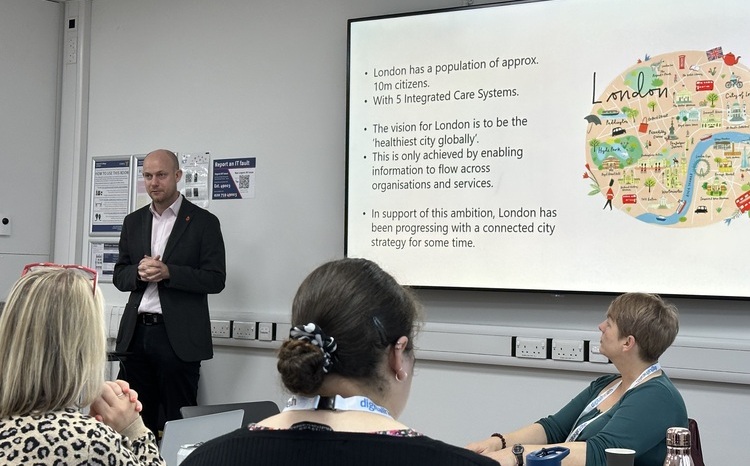Relations between Accenture and CfH chill
- 30 March 2006
Relations between NHS Connecting for Health and Accenture one of its prime contractors appeared to have chilled considerably this week following the firm’s Tuesday announcement that it was making a further $450m provision against losses on its two NHS IT contracts due to growing delivery delays, partly caused by late delivery of software from its main subcontractor.
As a result of its announcement Accenture’s share price sharply dipped while iSoft shares hit a four year low yesterday. Shares in iSoft had already halved in value in January when it unexpectedly announced to the City it would see no revenue for delivering new systems under the NHS National Programme for IT in 2006.
However, NHS CfH yesterday appeared to reject the notion that any blame should be attributed to Accenture’s principal subcontractor iSoft, and in a pointed statement stressed that ‘completion risk’ lay with Accenture, which it expected to discharge its “delivery obligations”. The DH agency added that it had requested “key personnel changes within the Accenture organisation”.
In a statement that seemed more mindful of the financial community than the NHS, CfH also said it was ‘surprised’ by its prime contractor’s Tuesday explanation for its $450m loss provision, appearing to dismiss Accenture’s statements that the extent of the delays and problems were cumulative developments, the full extent of which had only just become fully apparent.
“We have noted the announcement from Accenture; this appears to be consistent with the report to the market by iSoft last month. We were therefore surprised by the nature of Accenture’s statement and the notion that the issues were ‘recent developments’,” CfH said.
In its Monday announcement and analyst briefing Accenture specifically cited software delivery delays from its main software supplier iSoft, resulting in reduced demand from the NHS, as key reasons for revising its forecasts for the NHS contracts. Its chief executive and chief financial officer made clear that the full extent of the delays had only just become apparent at the very end of its Q2 reporting period.
Accenture’s executives told analysts on Tuesday: “We had undertaken detailed review that ended in February of iSoft and their ability to develop and deliver the solutions that we desired for the NHS. We determined at the end of February that there was going to be a significant delay, and we had to then work that through our estimating process and assess the impact of that.”
Accenture stated that the problems related to “significant delays by one of Accenture’s major subcontractors in delivering software”, “higher development costs and increased integration costs” leading to “revised programme release schedules”.
According to industry analysts Ovum, who are contracted to provide market intelligence to CfH, Accenture “has realised the extent of the likely delays by iSoft (the subcontractor providing the main application for Accenture to deploy) in delivering the strategic version of its software for the NHS. These delays, which Accenture describes as ‘significant’, will add costs for Accenture, which will have to implement additional interim solutions”.
In its statement CfH appeared to support Accenture’s sub-contractor, stating that iSoft was selected by Accenture (and by CSC) when they chose to bid for contracts under the NPfIT. “Under the contracts, the prime contractor has a clearly defined responsibility to manage its delivery obligations,” said CfH.
Yesterday’s CfH statement said: “Under our published procurement strategy we invited prospective suppliers to take completion risk and, where they chose to do so, this was reflected in the price. We continue to look to our prime contractors to fulfill their obligations to manage their delivery obligations. We believe that the issues are within Accenture’s control and have requested key personnel changes within the Accenture organisation.”
The CfH statement continued by counting up all deployments iSoft systems so far carried out by Accenture and CSC Alliance in the North East, Eastern and North West and West Midlands regions of the NHS.
CfH says that in the Eastern region Accenture has, however, already deployed 55 iSoft solutions and 18 in the North East. In the NWWM, CSC, is said to have deployed 127 iSoft solutions, and “developed a plan which will deploy the iSoft strategic solution (Lorenzo) in the NHS and a migratory plan for the iSoft interim solutions. We are awaiting a similar resourced plan from Accenture”.
However, the CfH statements did not say that most deployments have been versions of ‘existing’ iSoft systems – mainly stand alone departmentals and, with a few notable exceptions, relatively simple patient administration system implementations – rather than of the strategic integrated Lorenzo clinical solution due to have been delivered and widely implemented by now.
Under the original NPfIT contracts Accenture and CSC were meant to have been provided with phase 1 release 2 of the Lorenzo solution – offering patient administration together with orders and results – by the end of 2004. NHS and industry sources have now told EHI that under the most recently revised deployment schedules a strategic Lorenzo solution is now not expected until 2008, with volume deployment now not expected to begin until 2009.
A spokesperson for Accenture told EHI: "We are committed to the NHS vision and to working with the NHS to overcome the challenges ahead and deliver a world-class system."
Asked how it had managed the costs of late delivery, Fujitsu, the LSP for the South of England, said in a statement: "Fujitsu took prompt action last year as soon as the delays with our previous sub-contractors became evident. With support from CfH we changed supplier and this led to a small but not material write-off. Since we switched to Cerner as our principle sub-contractor the programme has been proceeding well and there are no further surplus costs to be written off."




